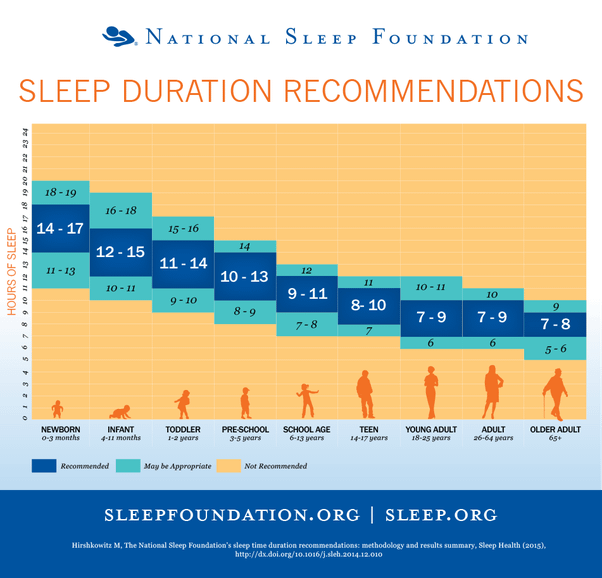It is really easy to get caught up with everything going on in life. And oftentimes it is at the expense of your bedtime and “waketime” schedule. Work, school, volunteer obligations can pile up on a day-to-day basis. Not to mention squeezing in a “cat nap”, socializing with friends and family, and destress activities like exercise and watching television.
According to an article released by the University of Georgia, college students need at least eight hours of rest! (Do you get that much sleep?)
By giving yourself the right amount of rest strengthens your immune system, restores energy, improves memory, and contributes to a positive mood.
When you do not get enough rest it can lead to weight gain, physical and mental illness, and even a lower grade point average. I can personally say that the nights and exams that I pulled all-nighters for did not grant me better academic performance the next day. In college, I have learned that there is nothing better for your performance than a good night’s rest.
The study performed by the University of Georgia found the following results that the lack of rest has on academic performance:
“The very qualities you need to maximize in order to do well on tests, such as recall, concentration, and alertness, are decreased when you are sleep deprived. Research has shown that students who get 6 or fewer hours of sleep have a lower GPA than those who get 8 or more.”

With the fact that less rest hurts academic performance here are five effective tips to improve your sleeping habits (and possibly your grades):
1. Establish and maintain a regular rest schedule, even on the weekends.

Establish a bedtime and a “waketime”. Stick to the schedule of sleeping for 8 hours. For Example, if you go to bed at 9 PM then wake up at 5 AM. Wake up at the same time on weekdays and weekends. Use Google Calendar to set your bedtime and your daily schedule. If 5 AM is too early for you to study then schedule one hour of Bible study or exercising. On the days I have managed to wake up early, I love the feeling of accomplishing many tasks. This contributes to the fact that enough rest contributes to better mental health.
2. Only use your bed for sleeping and only lay in it when tired.
I know that it is really tempting to attend online classes in the same room you go to bed in. It is especially difficult to not just attend that particularly boring lecture in the comfort of your own bed. Whatever you do resist and do not attend class on your bed! It is asking to either fall asleep or be very distracted in class. If you can change your scenery! Attend class outside or in your kitchen, if these places are free of distractions and safe. Another tip that I heard is to make your bed when you wake up so that your bed is not an invitation to hop back into bed.
3. Limit naps to one hour or less and take them early in the day.

This is a GREAT tip! Lately, I have only had time for thirty minutes to one-hour naps around noon. They do just the job! I wake up feeling energized and not drowsy and I am ready to participate in my next activity or complete my next task effectively. I would also suggest doing time blocking where plan out your bed and task accomplishments by time chunking. You can dedicate an hour to one subject’s homework or studying. Then take a fifteen-minute brain break to read a book for leisure or talk to a friend. Then you spend the next one hour working on another class’s work. I love time blocking. It helps me avoid taking naps.
4. Do not eat or exercise within two to three hours before you go to bed.
Biologically, everyone should follow this advice. A bowl of Frosted Flakes never tastes better than at night time but even I need to break this habit of late-night snacking. If you eat too close to bedtime you are providing your body with calories that it does not need. When you lay down your body will store the calories for later and this can cause weight gain. Lack of rest will create an endless cycle of feeling hungry late at night when you actually tired or bored. Your hormone balance is reliant on efficient rest, especially hormones involved with appetite.
You may think that you only have time to exercise right before bed, but it is really important that you find an alternative. Try exercising for fifteen or thirty minutes between activities. You can also be creative in exercising while working! For Example, use a standing desk that requires you to stand to complete work at your desk. You can also sit at an exercise ball at your desk. You need to complete your workouts at least 2 hours before bed to give it time to relax.
5. Avoid nicotine and caffeine before bedtime.

This is a no-brainer! You should avoid nicotine and caffeine before you go to bed. Both of these substances can make you feel tired but can have a negative effect on the quality of your sleep. Disrupted rest can make you feel worse the next day and even like you did not go to bed at all. You should try and avoid these substances in excess and try to remove them from your consumption. You can eat foods like almonds to give you energy instead of drinking coffee.
These tips will surely help any student improve their sleeping habits. I know when I practice these things I definitely see an improvement in the quality of my rest. And overall mental, physical, and academic performance. Let me know in the comments if you tried any of these tips. Did you notice a difference? Do you have any other tips that you have already implemented?
Bonus: Here is a Habit Tracker you can use to improve Sleeping Habits:

Click the Download button above. Next a pdf file will download to your device. Finally, you can use this checklist to maintain and adjust your sleeping habits.
Check off your accomplishments each day. At the end of the week erase your checkmarks and start again!





 ). If you can identify with any of these perspectives then continue reading my blog!
). If you can identify with any of these perspectives then continue reading my blog!